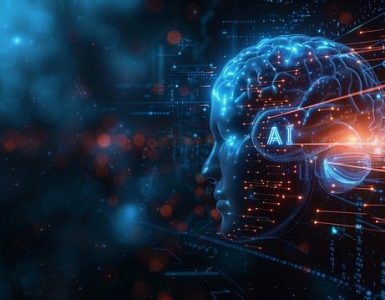Remember those wild sci-fi flicks from your childhood? Flying cars, robots doing our chores, talking to people across the globe instantly? Sounded crazy, right? Well, buckle up, buttercup, because some of that futuristic fantasy is creeping into our reality faster than you can say “warp speed.” Sci-Fi's Next Act: How Tomorrow's Tech is Already Rewriting the Script
Let’s ditch the overly serious “analysis” and dive straight into the fun stuff. We’re talking about the cool tech that’s blurring the lines between science fiction and everyday life. Think about it: smartphones themselves are basically mini-computers from a 1980s movie. Remember those clunky cell phones in “Back to the Future”? We’ve gone from bricks to something that can fit in your pocket and do, well, practically everything.
Self-Driving Cars: More Than Just a Cool Gadget
Remember KITT from “Knight Rider”? The talking car that practically drove itself? We’re not quite there yet with a sassy AI personality, but self-driving cars are already on the roads. Companies like Tesla and Waymo are constantly refining their autonomous driving systems. While there are still kinks to work out (and occasional fender benders!), the technology is advancing rapidly. It’s not just about convenience; it’s about safety and efficiency. Reducing human error on the road could save countless lives.
AI: Your New Best Friend (and Maybe Your Boss)?
From HAL 9000 in “2001: A Space Odyssey” to the more benevolent robots in “Wall-E,” AI has always been a major player in science fiction. Today, AI is everywhere—from the algorithms that curate your social media feed to the voice assistants in your home. We’re seeing AI power everything from medical diagnoses to financial predictions. The future likely holds even more sophisticated AI, which could revolutionize industries and solve global challenges – but also presents ethical considerations that we’re only beginning to grapple with. What happens when AI becomes so advanced that it surpasses human intelligence? That’s a sci-fi plotline that’s suddenly feeling a little too close to home.
Virtual and Augmented Reality: Stepping Into Another World
Remember the holodeck in “Star Trek”? While we’re not quite teleporting to exotic locations, VR and AR are offering increasingly immersive experiences. From gaming to virtual tours, these technologies are transforming how we interact with the digital world. Imagine using AR to overlay instructions during a complex repair job or using VR for remote collaboration with colleagues on a project across the globe. The possibilities seem endless. And as the technology improves, the lines between the virtual and the real will continue to blur, raising questions about what it means to be truly present and connected.
Biotechnology: Sci-Fi’s Promise of Healing
Sci-fi frequently explores the potential of biotechnology, and it’s becoming a reality at an incredible rate. Gene editing, using tools like CRISPR, holds the promise of curing genetic diseases. 3D-printed organs could revolutionize organ transplantation. Nanotechnology could target disease at a cellular level, offering highly personalized medicine. It’s a field that is dramatically altering our understanding of disease and healing. But of course, as with any rapidly developing technology, ethical questions about access, genetic modification, and the potential for misuse need to be addressed.
Space Exploration: Reaching for the Stars
The classic sci-fi trope of humanity venturing into the cosmos is becoming increasingly plausible. Space tourism is no longer just a pipe dream, and companies like SpaceX and Blue Origin are making strides towards making space travel more accessible. The colonization of Mars, once relegated to the realm of science fiction, is now a serious goal for many space agencies and private companies. This quest will not only push the boundaries of human exploration but will also likely lead to breakthroughs in many other fields, from materials science to energy production.
The Ethical Tightrope: Navigating the Future
As these technologies advance, we face a crucial challenge: ensuring their ethical development and deployment. AI bias, data privacy concerns, the potential for job displacement due to automation, and the ethical implications of gene editing are just a few of the complex issues we need to address. Science fiction has often served as a cautionary tale, highlighting the potential pitfalls of unchecked technological progress. We need that foresight to guide us as we navigate the path towards a future shaped by these remarkable innovations.
The future is not a predetermined destination; it’s a landscape we are actively shaping. Science fiction, with its imaginative explorations of possibilities and potential pitfalls, provides a powerful lens through which to examine the technological trajectory of our world. It’s a constant reminder that as exciting as these advancements are, we must proceed thoughtfully and responsibly, ensuring that the future we create is one that benefits all of humanity.

























Add comment